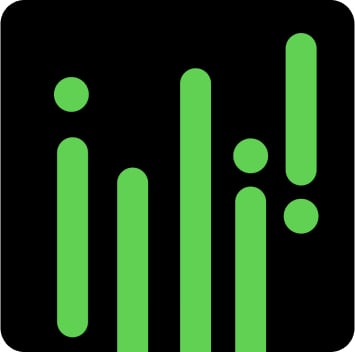How accounting software saved my weekends and family time

I’ve got a confession: I live in fear of numbers. Words make me happy.
Alongside working full time, I’ve been self-publishing books on Amazon and blogging for several years. There’s just one problem: self-publishing and selling books and blogging costs money.
My typical monthly expenses include website hosting, book cover designs, book editing and some other tools I use for social media. My typical income includes my (modest) book sales.
I used to manage my income and expenses for my books and personal blog on a spreadsheet (the horror) rather than using accounting software. I dreaded the end of the month because I had to open a spreadsheet, log into my bank account and do the hard job of totalling up my income and expenses.
And at the end of the year? I gathered up all my receipts, invoices and statements and handed a shoebox to my accountant for sorting. Even then, I didn’t have a clear way of explaining what was what.
The problem with out-of-control finances
Not tracking my income and expenses caused me lots of problems.
I couldn’t work out if I could afford to spend money hiring an editor or book cover designer. I also couldn’t tell if I needed to hold on to my income to pay for bills, petrol and family holidays.
About a year ago, it got to the point where I found it all but impossible to tell the difference between my personal finances and my income and expenses from self-publishing books and a running blog.
After talking to a friend who runs a small business, I set up a business bank account with Allied Irish Bank in Ireland. (If you’re in the UK, your bank should be able to advise on business banking).
Another big change I made was to start using cloud accounting software to track my income and expenses from selling books. Rather than using Excel and Word docs, the software helps start ups and small businesses track their income and expenses, manage their finances, send invoices and more.
Once I took out a trial of the software, what happened next surprised me.
I separated my personal and business finances
Although I work for Sage, I’m not an accountant and up until recently, I had no real experience using accounting software. So, I was pleasantly surprised to find it took me about five minutes to get started with it and connect it to my business bank account.
I started using my business account and the software to track any income and expenses related to my website and for receiving payments from selling books on Amazon.
Using a clever technology known as bank feeds, it automatically pulled in all my bank transactions and helped me categorise them.
Money paid to book designer? Check.
Bills for website hosting? Categorised.
Subscription for a social media tool? Cleared.
For me, this felt like I was treating my website and selling books like a business and not just a hobby. And I didn’t have to cancel the family holiday. Keeping costs low is a big challenge for entrepreneurs, sole traders and small business owners.
That said, I’ll happily pay for a business service if it saves time or solves a problem.
I saved several hours each month with accounting software
Balancing writing, having two kids and working a full-time job is difficult. I just don’t have a lot of free time at the end of the month or quarter to balance the books and worry about my cash flow.
The time you spend tinkering with spreadsheets is much better spent on serving customers or (in my case) writing books.
I’m not the only customer who believes this. I recently watched a case study video (see above) that featured Jen Walker, who runs The Split Screen Coffee Company. She talks about how using accounting software changed how she runs her business for the better. I’ve never met Jen, but I felt as if where were speaking right to me.
Around the 1.33 minute mark, Jen says: “[Accounting software] gives me autonomy and security.”
What used to take me three hours on a dreary Saturday or Sunday in sorting my business admin now takes me just 40 minutes.
Depending on your needs, this might take you longer but I found out that bank feeds can reduce the amount of time spent entering information manually by as much as 80%.
What’s more, having my finances in order also means I get to pay my accountant less come the end of the financial year because he doesn’t have to sort through a shoebox of receipts and invoices.
That’s time (and money) I’ll happily claim back.
Taking your business seriously
If there’s one lesson I’ve learned, it’s that putting the right accounting software in place is key to taking your business seriously.
It doesn’t have to be time consuming or stressful to do and if you’re just starting off with your business, it’s much easier to take charge of your finances now rather than several years down the road.
Do you still collect your receipts in a shoebox, or do you have another solution for sorting your business admin? Let us know in the comments below.
How to start a business – your free guide
Starting a business? Our essential guide is packed with straightforward advice on everything from planning to launch.







Ask the author a question or share your advice